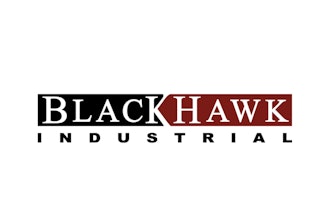
Industrial distributors have always faced margin pressure. In fact, according to the 2020 US Census Bureau’s Annual Report for Wholesale Trade, gross margins in the industry had remained unchanged, at 29%, for the previous decade. The continued upheavals and uncertainties of the 2020s have only made matters more challenging. The answer to the all-important question—“What should we focus on?”—has spiraled from e-commerce to supply chain relationships to inflation to tariffs, leaving businesses questioning the best course of action.
Distributors can only grow profits by selling more or operating leaner, which allows them to cut costs and drive margin growth. In rapidly changing circumstances, knowing exactly how to achieve this is challenging, but technology—specifically artificial intelligence (AI)—is quickly becoming a game-changer.
According to Industrial Distribution’s 78th Annual Survey of Distributor Operations, published in June 2025, 29% of respondents said that their companies were using AI, while only about 10% said AI was positively impacting their businesses. However, “AI was easily the technology that respondents anticipated adopting the most,” as more than 43% expected their companies to implement AI in the next two years.
One of the most important figures here is that 10%—the companies benefiting from AI—because that’s where the opportunity for a competitive advantage lies. If only 10% of distributors are reaping positive benefits from AI, that means the other 90% either haven’t implemented AI at all or have implemented AI tools that don’t fit their business processes. This misalignment between AI tools and organizational goals can happen for multiple reasons, from employee resistance to pilot successes that can’t be reproduced at scale. But one of the most significant causes has to do with data.
AI tools are only as good as the data on which they run. If that data is fragmented, if the AI can’t integrate smoothly with the systems the data is stored in, if those systems themselves are disconnected from each other in the first place, the AI will struggle to provide clean, accurate, valuable results. The same holds true when a business chooses to use a generic AI tool that learns from public datasets instead of a private tool that learns from their specific business data.
To navigate these issues and gain that promised competitive advantage, industrial distributors should consider looking for AI tools that can be directly integrated into their existing workflows. These are tools that are intuitive to use, that solve real-world distribution challenges, and that seamlessly integrate with the company’s current business management technology.
These kinds of resources won’t be found in generic AI or bolt-on applications. They’ll be found at the level of enterprise resource planning (ERP) software.
Enterprise Resource Planning and Artificial Intelligence
The 2025 Survey of Distributor Operations also found that 50% of respondents use ERP software, which marks a foothold for another competitive advantage. ERP solutions are becoming the central nervous system of the modern distributor, breaking down data silos, connecting all departments, and providing a 360° view of organizational processes to fuel data-driven decision-making. And it is this 360° view that provides the perfect foundation for implementing AI in a way that ensures a solid and ongoing return on investment.
When embedded in an ERP system, AI’s true business potential is unlocked—providing practical, distribution-specific capabilities that return meaningful, reliable results. Let’s look at a few.
Anomaly Detection
One of the first steps to growing margins is understanding why those margins are tight in the first place. AI comes into play here by automatically identifying, and notifying decision-makers about, pricing anomalies. Have you been offering excessive discounts? Have vendor price changes gone unnoticed? Are customers paying their bills fully and on time? AI-powered anomaly detection serves as an intelligent advisor, uncovering hidden trends and catching margin irregularities before they become major problems.
Item Recommendations
Upselling, cross-selling, and item substitution recommendations are especially critical for industrial distributors because their inventories often consist of “investment items”—like larger equipment and machinery—that retailers (and customers, if you sell D2C) don’t stock/purchase often. If you sell welding machines, you might want to cross-sell by suggesting customers also buy welding helmets, rods, safety glasses, or maintenance kits. If a customer has already sourced one welding machine model from you, you may want to suggest they return to upgrade to a more advanced model. If the item a customer wants to buy is out of stock, you will want to suggest comparable substitutions.
Doing all this manually, across a growing product catalog, can be a huge, time-consuming task. But AI embedded in an ERP system learns from historical sales data to make these upsell, cross-sell, and substitution recommendations automatically. It’s a strategic, streamlined way to increase the value of sales and prevent lost sales due to stockouts.
Document Recognition
Billing and invoicing are central to distribution operations, but they can become very complicated as you receive bills and invoices through various channels—from email attachments to physical paper documents. Relying solely on accounts payable clerks to retype this information into the finance system is fraught with human error and ties up employee time that could be better spent doing higher value, business-enhancing tasks. AI-powered document recognition, within an ERP solution, extracts data from emailed or scanned PDFs and automatically creates corresponding accounts payable records for those PDFs. This eliminates excessive manual data entry and improves overall accounts payable efficiency. Ultimately, it gives industrial distributors a clearer, more precise picture of their outlay, so they can easily find areas where costs could be cut, operations made leaner, and margins improved.
A Turning Point
The advent of AI marks a significant turning point for industrial distributors. As others in the industry lag on AI adoption, making the most of AI’s business value is a strategic move that can win your organization a significant competitive advantage.
To learn more about becoming, and staying, a resilient distributor in today’s constantly changing markets, read Acumatica’s free eBook: “Resilient Sales Strategies for Wholesale Distribution and Retail Leaders.”






















